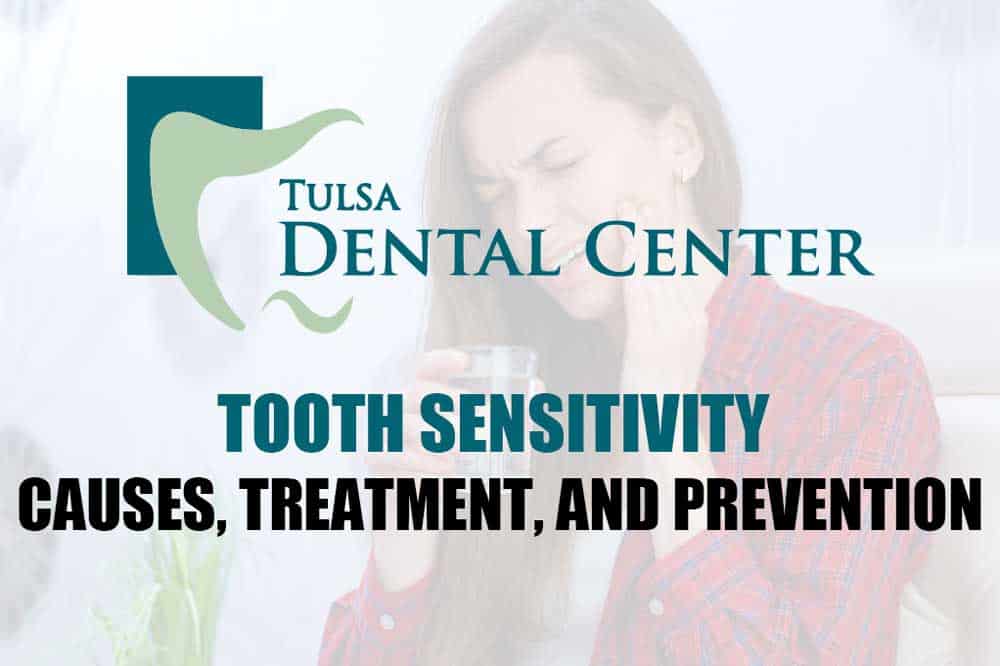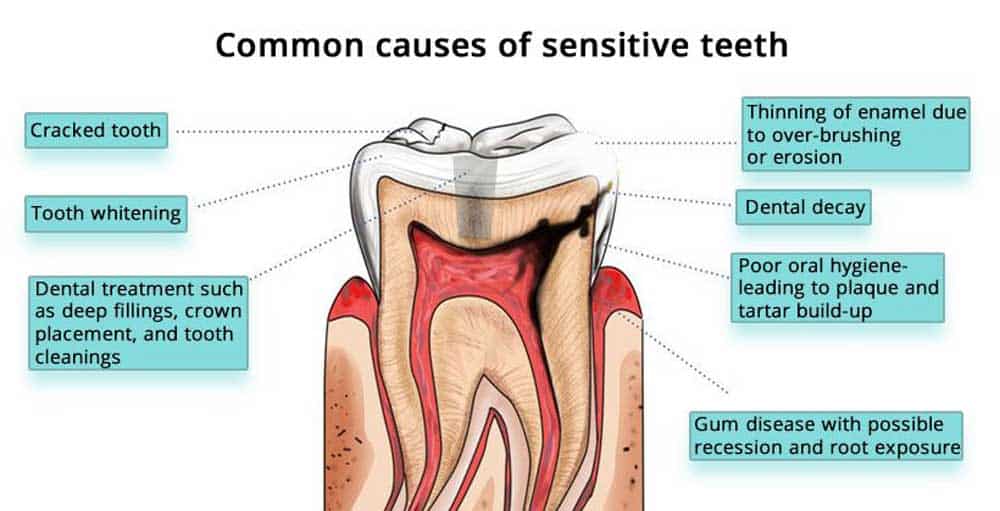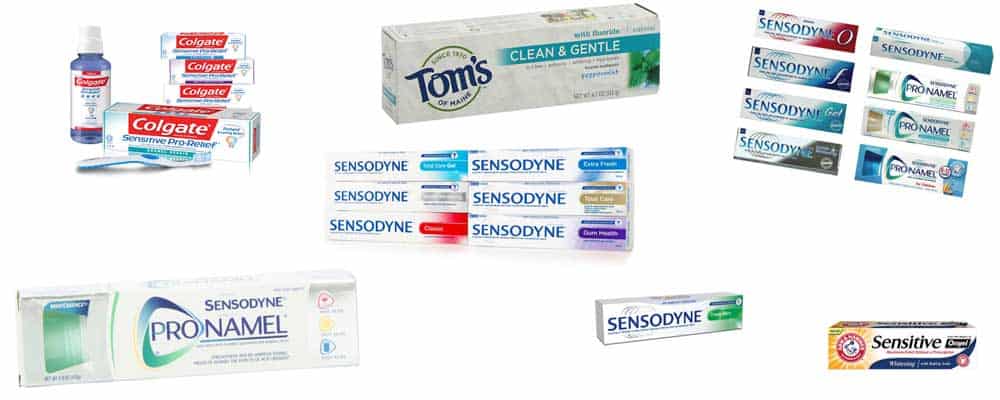Tooth Sensitivity: Causes, Treatment, and Prevention
For Tulsa Dental Center Patients

What Is Tooth Sensitivity?
Tooth sensitivity is a common and often chronic dental problem involving discomfort or pain in the teeth when encountering certain substances and temperatures.
The pain usually comes in sharp bursts that can travel deep into the nerve.
Tooth sensitivity is often triggered by sweet foods and beverages and hot and/or cold foods and beverages.

The tooth is protected on the outside by a layer of enamel (the visible part of the tooth) and cementum (protects the root under the gum line).
Once either or both of these layers are gone, dentine becomes exposed.
Dentine contains channels full of fluid and connected to the nerve tissue inside the tooth. When these channels are exposed to hot, cold, or sweet substances, the nerve inside is stimulated and often produces a sharp pain.
Why Do Some People Suffer From Tooth Sensitivity?
One cause of tooth sensitivity is brushing with too much force. This can damage the gums, leading to gum recession.
Gum recession leaves the root surface of the tooth exposed. The cementum which covers the surface of the root is easily removed with forceful brushing.
Other contributors include abrasive kinds of toothpaste, acidic drinks in excess, and tooth grinding. These can all cause tooth enamel to weaken and wear out over time.
Sometimes, a more serious underlying issue contributes to tooth sensitivity. One example is periodontal disease, a severe gum infection that damages the soft tissue and bone supporting your teeth.
Another example is tooth decay. Both tooth decay and periodontal disease can be the underlying cause of tooth sensitivity, and it is essential to have regular dental checkups to ensure early detection of these problems.
What Are the Treatment Options for Tooth Sensitivity?
Most of the time, sensitive teeth can be treated so that the discomfort disappears entirely or is at least significantly reduced.
 One tool that can be useful in treating sensitive teeth is desensitizing toothpaste. Often this is enough to curb the sensitivity, so it’s a great and affordable place to start.
One tool that can be useful in treating sensitive teeth is desensitizing toothpaste. Often this is enough to curb the sensitivity, so it’s a great and affordable place to start.
The ingredients in desensitizing toothpaste help block the sensations traveling from the tooth surface to the nerve.
If sensitive toothpaste doesn’t seem to help, a dentist can apply a desensitizing varnish or gel to the affected area.
Sometimes a filling can be used to cover the exposed dentine.
These are just a few simple, non-invasive options that usually work well at addressing tooth sensitivity.
There are some surgical treatment options available if the treatments mentioned earlier aren’t a good fit for your particular situation.
Can Tooth Sensitivity Be Prevented?
Once your tooth’s protective layers are gone, there is no way to get them back. You can, however, take some preventative measures to help protect your teeth.
As mentioned earlier:
- Do not brush harshly
- Avoid abrasive kinds of toothpaste
- Limit consumption of acidic foods and beverages
If you are suffering from toothache or sensitivity, give Tulsa Dental Center a call to book a dental checkup. We look forward to hearing from you!

Have Questions About Dental Crowns?
.
Phone
Office Location
4824 S Union Ave,
Tulsa, OK 74107
Contact Information
Payment Methods:

Business Hours
| Monday | 8AM - 5PM |
| Tuesday | 8AM - 5PM |
| Wednesday | 8AM - 5PM |
| Thursday | 8AM - 5PM |
| Friday | Closed |
| Saturday | Closed |
| Sunday | Closed |
